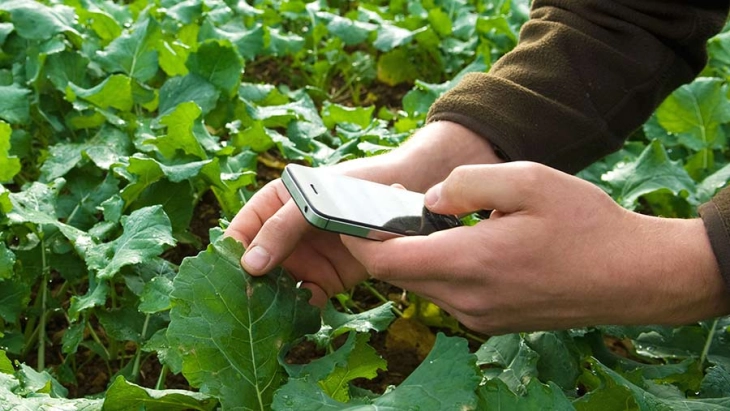Initiatives exist for smart agriculture in the country, but not enough for more significant socio-economic effects: conference

Skopje, 9 November 2022 (MIA) – North Macedonia is a country of information scientists and initiatives already exist on the market on the use and development of information technologies in agriculture, but this is not enough for more significant socio-economic effects, said participants in Wednesday’s conference on smart agriculture organized by the Agricultural Institute - Skopje.
The conference, which brought together science, manufacturers, competent institutions and students, opened the question of how agriculture can become attractive for young people in the country through the use of information technologies and new modern business models.
“I will not open the conference speaking about the crisis, which would probably be expected amid such conditions, but I will speak about the fact that we are trying to make agriculture accessible to young people. How? Through information technologies. As in any other segment of society, in the agriculture sector too, there is no future without the young people. It is extremely important for us to find models, incentives and young people who are already dependent on technologies every day, to direct their interests towards agriculture,” said head of the Agricultural Institute, Viktor Gjamovski.
According to the Minister of Agriculture, Forestry and Water Economy, Ljupcho Nikolovski, digitalization of Macedonian agriculture is one of the key priorities.
“We see the food crisis that will hit the world as an opportunity for drastic reform in agriculture, which, among other things, implies its digitalization. Connecting all programs with production and final products, as well as eliminating all irregularities, is the essence of the change in our agrarian policy,” the Minister said.
He noted that innovative solutions are coming from young people, mostly in viticulture for the timebeing.
“The goal of all the measures we take is to reach the number of 2,000 new manufacturers within the next five years,” Nikolovski pointed out.
Professor Miljan Cvetković from the Faculty of Agriculture in Banja Luka, Bosnia and Herzegovina, focused on the importance of coordination in science from different but interconnected fields. He noted that some of the ways to attract young people to agriculture include master studies on using drones, holding hackathons, organizing virtual fairs, as well as networking.
“I believe an interdisciplinary approach is very important. ICT is very important for agricultural production, but as they say in Wageningen, the Netherlands, where the leading Faculty of Agriculture is, it wouldn’t be wise to introduce new technologies because it is a trend, but to solve problems,” the professor stressed.
Biljana Drvoshanova from the Agricultural Institute pointed to smart greenhouse production as a way to ensure food safety. She said the use of new technologies can significantly reduce costs and increase yields, as well as provide security and continuity in food supply. Drvoshanova noted that the advantage of smart systems is that they enable rational use of energy, i.e. saving water and energy, as well as efficient and safer plant protection. However, she added, IT devices are expensive, and the price for their maintenance is also high.







